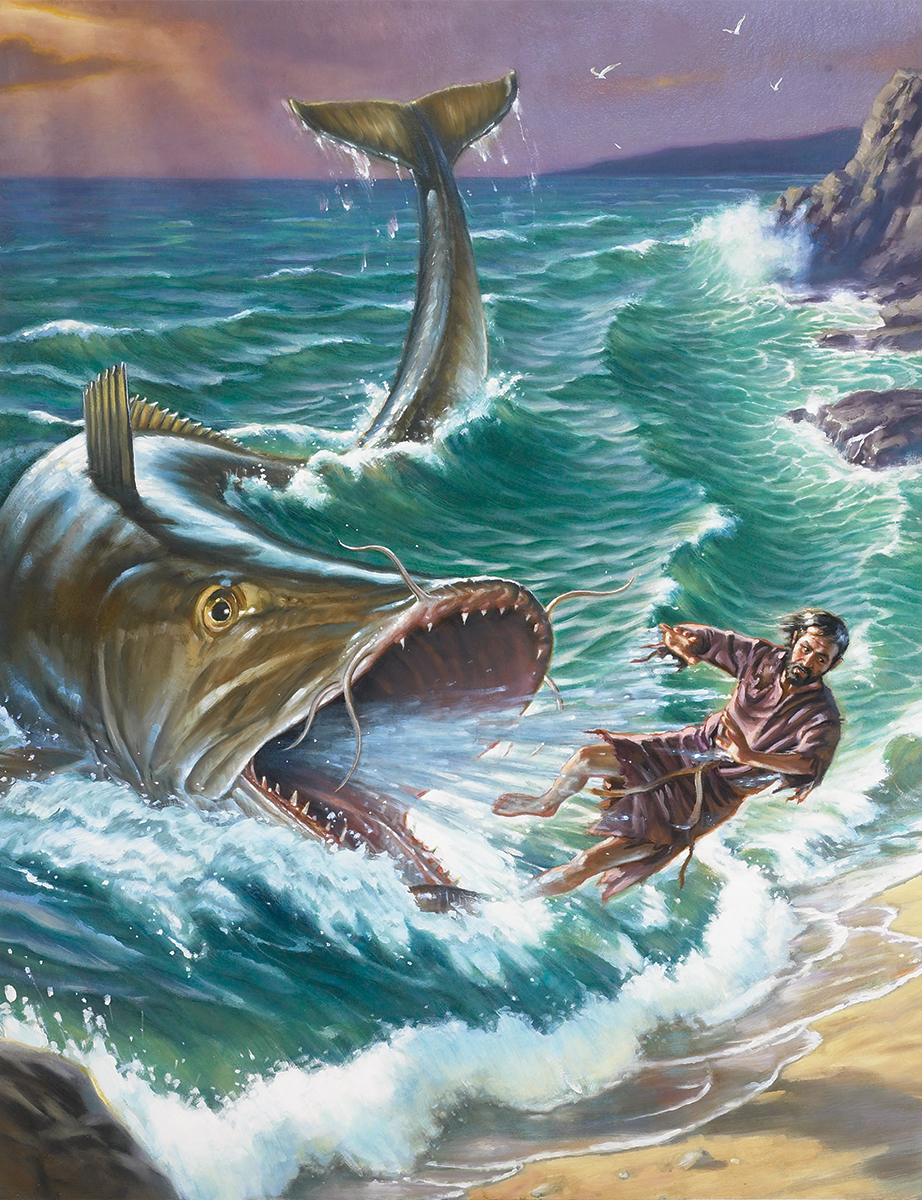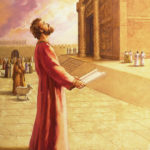The text for this lesson is Book of Jonah
Key Point
- Just as Jonah was swallowed up in the belly of the fish for three days, so Jesus, in His crucifixion, was baptized into the sea of death, drowned in our sin, devoured by the grave, and spewed forth alive again on the third day so that He might save us all.
- Law: In my sin, I judge and condemn others. I am unforgiving because I am blind to my own sin and guilt.
- Gospel: God, who sees my sin, is rich in mercy and forgives me for Jesus’ sake.
Discussion Points
- Why did the interpretation of Jonah and the account of the creation of the world (Genesis 1–2) become controversial in twentieth-century Christian history? What does Jesus say about Jonah and the creation in Matthew 12:39–41 and 19:3–6?
- Why would Jonah have been reluctant to go to the Assyrians, in particular, with a message of repentance? See God’s description of Assyria in Isaiah 10:5 and Assyria’s threats in Isaiah 36:12, 18.
- Why should Jonah have known better than to try to flee God’s presence (1:2–3)? See Genesis 3:7–10 and Psalm 139:7–12.
- What part of the Bible does Jonah’s prayer in chapter 2 sound like? Where would he have learned to pray in this way? What is the overall theme of his prayer? What signals the Lord’s answer to his prayer (v. 9)?
- What does chapter 3 of Jonah teach about the power of God’s Word? Compare with Isaiah 55:10–11. What was the evidence that His Word had done its work in Nineveh? How does His Word impact us?
- Jonah should have been overjoyed at the outcome of his preaching, but he lamented God’s kindness toward the city because he would have preferred disaster to strike Israel’s enemy (4:1–4). He wanted the Gospel only to apply to Israel, not to any Gentiles, and especially not to Assyria. What did Jonah have in common with the Pharisees? See Luke 15:1–2. What does Jesus say about attitudes like Jonah’s in Luke 6:35–36?
- What is the point of the story about Jonah’s plant (4:5–11)? Compare with Matthew 20:1–16.
- Though the Lord has drawn us in with the question “And should I not pity Nineveh?” (Jonah 4:11), we find that we have not reached out to others with the Gospel as well as we should have. How does the One “greater than Jonah” (Matthew 12:41) answer the question perfectly in our place? See John 12:23–24, 31–33.







